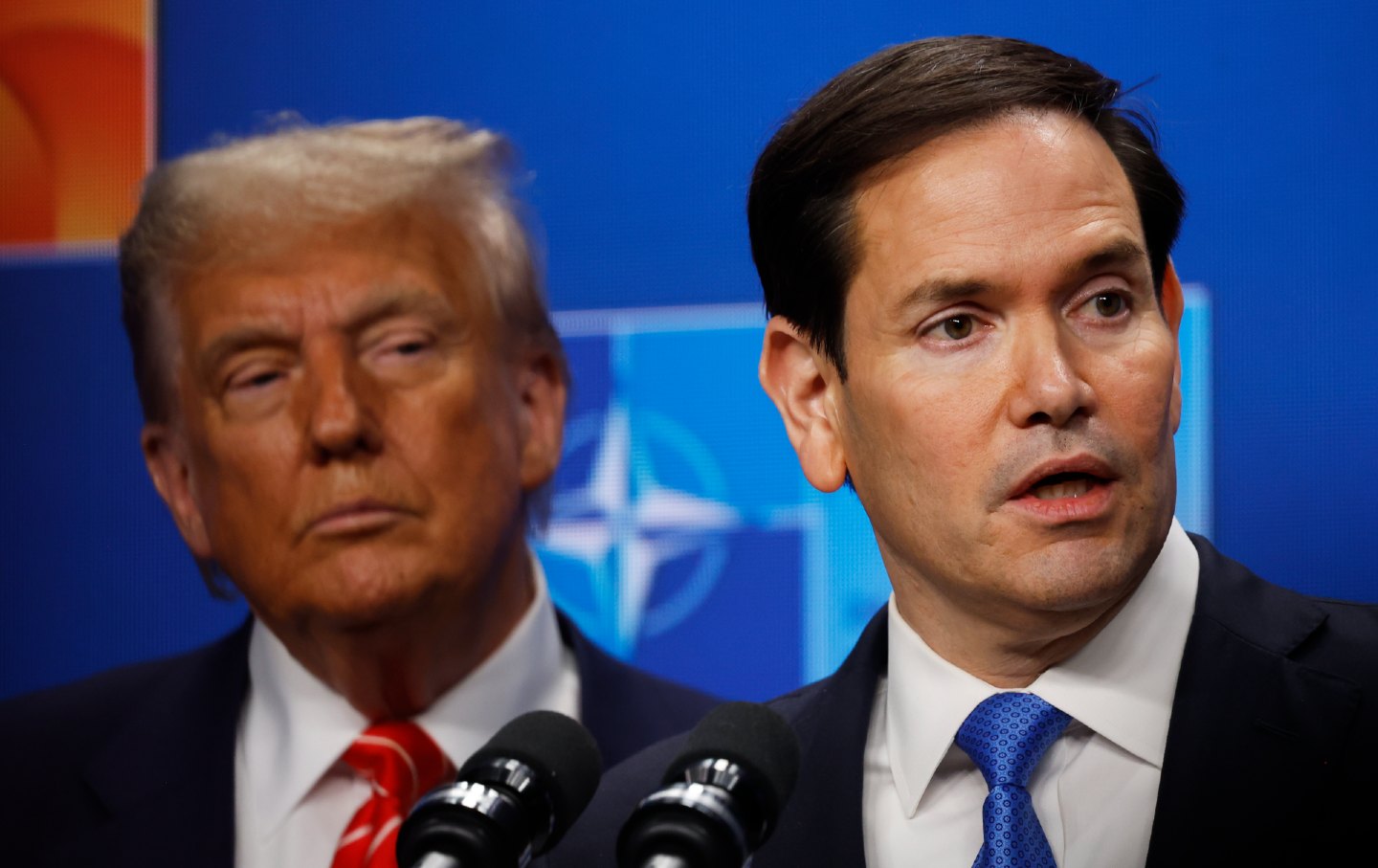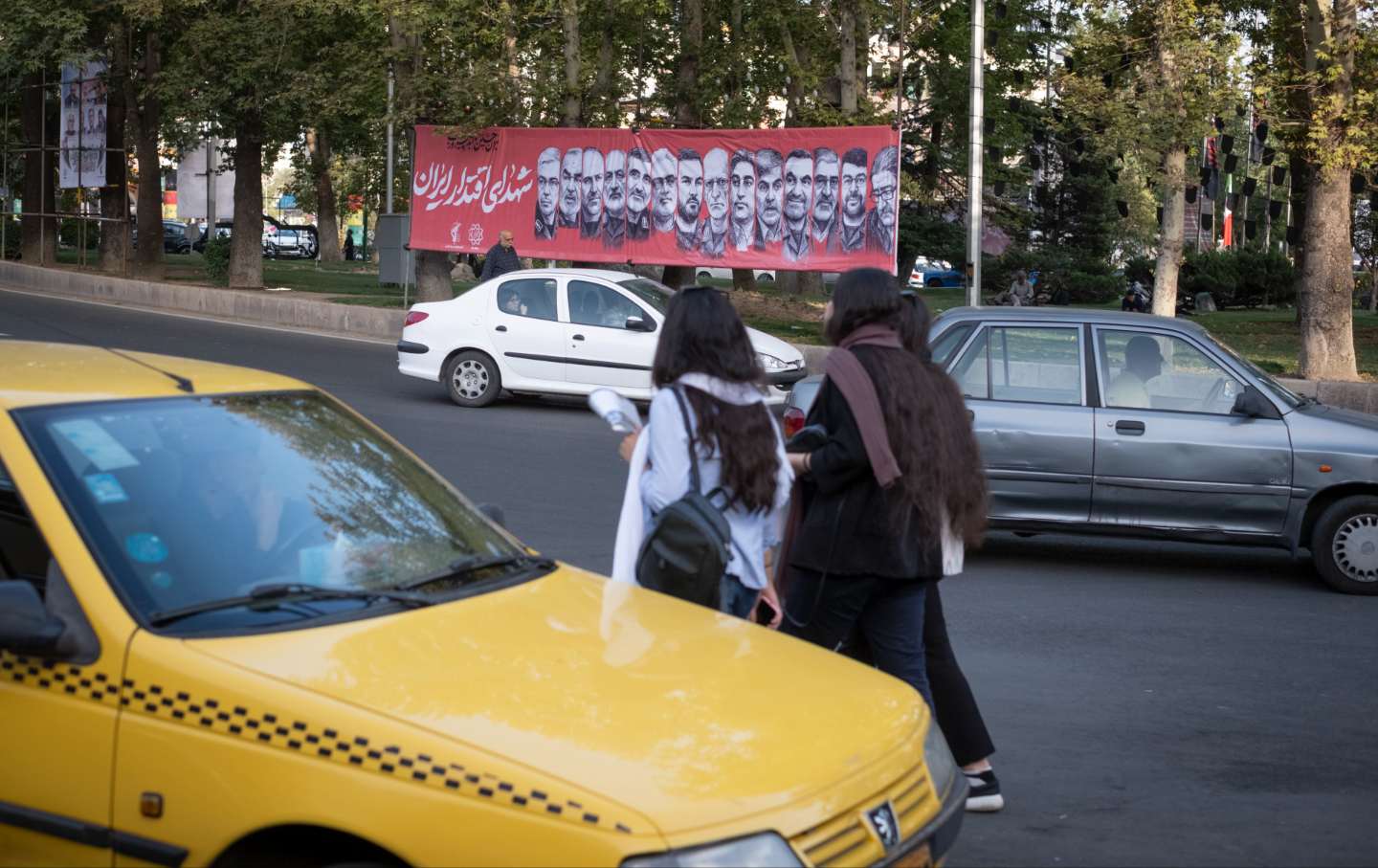July 15, 2025
Marco Rubio tramples on law, justice, and truth.
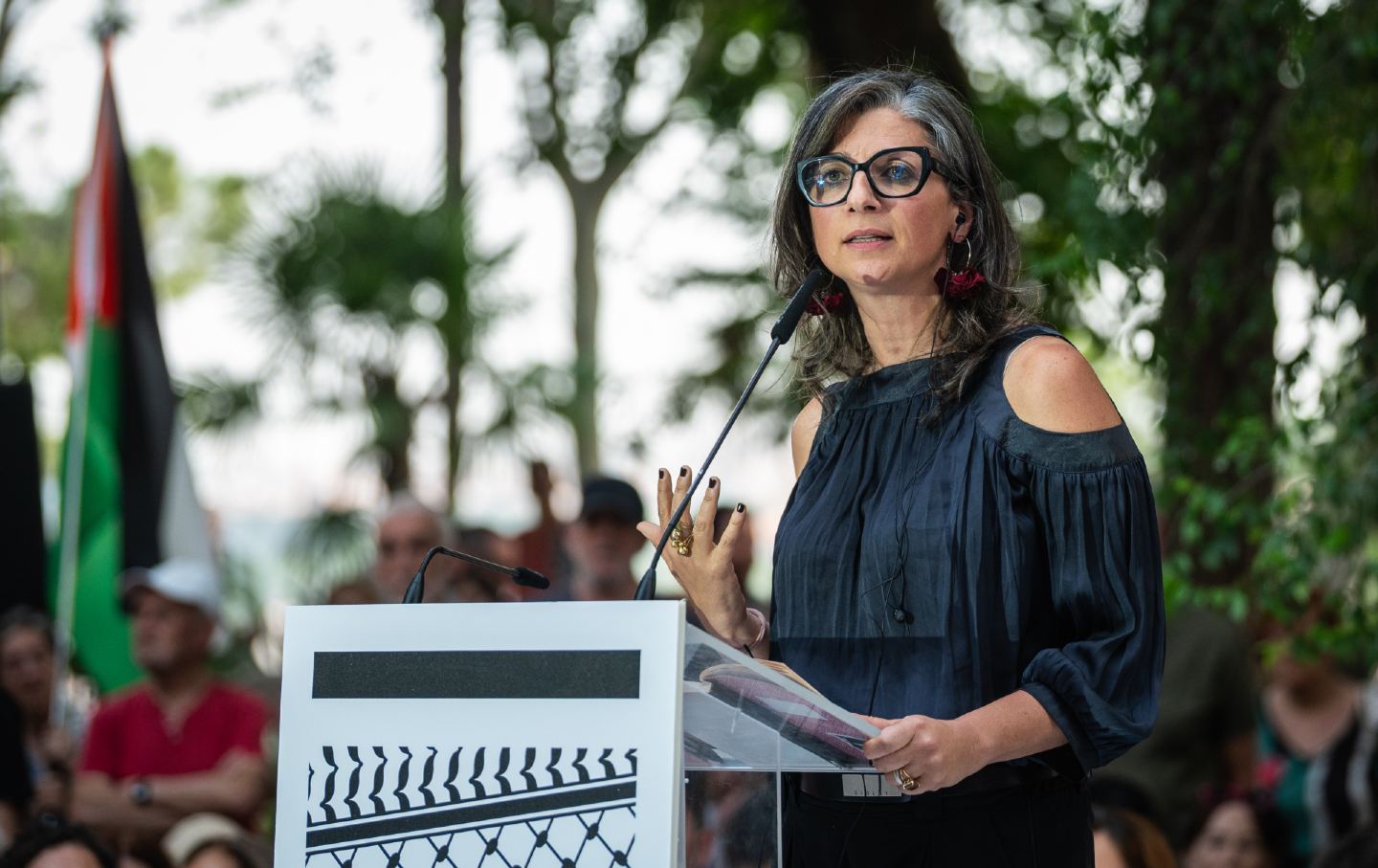 United Nations special rapporteur Francesca Albanese speaks during the “Stop Genocide, Free Palestine” event organized by the Spanish left-wing Sumar Party on June 23, 2025, in Madrid.(Marcos del Mazo / Getty Images)
United Nations special rapporteur Francesca Albanese speaks during the “Stop Genocide, Free Palestine” event organized by the Spanish left-wing Sumar Party on June 23, 2025, in Madrid.(Marcos del Mazo / Getty Images)
US Secretary of State Marco Rubio, in a dazzling Orwellian display, inverted reality by slapping sanctions on Francesca Albanese, the much-embattled UN special rapporteur for the Occupied Palestinian Territories of East Jerusalem, West Bank, and Gaza. If the sanctions are implemented against this extraordinary citizen of Italy, in the face of strong objections from the United Nations, Albanese will be barred from entering the United States, presumably even to discharge her annual duty to present a report to the Third Committee of the UN General Assembly. Additionally, as a vindictive feature of the sanctions, whatever American financial assets she happens to possess, including real estate, will be frozen. It is notable that not only is Albanese the first UN unpaid officeholder to be sanctioned, but that she happens to be the first woman named as UN special rapporteur for occupied Palestine.
Relying on an earlier Trump executive order (14203, “Imposing Sanctions on the International Criminal Court”), which is a stretch when it comes to the special rapporteur (SR) role held by Albanese, Rubio resorts to this lawfare ploy to connect her with analogous sanctions imposed in February on five members of the ICC for their involvement in the issuance of arrest warrants for Israeli Prime Minister Benjamin Netanyahu and former Israeli Minister of Defense Yoav Gallant. The only link between the International Criminal Court and Albanese derived from her most recent SR report that explores the connections between the profits earned by some US corporations and European defense sectors and her carefully documented allegations of Israel’s criminal responsibility for genocide in Gaza. The recommendation in her report to the UN of investigation and indictment by the ICC provides the basis for accusing Albanese of waging “economic warfare” against the United States and Israel. As may be expected, Big Tech and arms dealers exerted their own pressure for the US to strike back—and strike back it did.
Anyone familiar with the vicious Israeli campaign against Albanese, fully seconded by the US, since her appointment in 2022 will jump to the plausible conclusion that these two countries were waiting for just such a scenario to take punitive action against this fearless scholar and passionate advocate of human rights for the Palestinian people. Rubio acknowledged as much when he departed from the technical rationale for sanctions, giving voice to the deep roots of US hostility to Albanese. Rubio’s words read as if scripted by the most militant of AIPAC or UN Watch loyalists: “The United States has repeatedly condemned and objected to biased and malicious activities of Albanese that have long made her unfit for service as a Special Rapporteur.” His statement goes on to falsely contend that “Albanese has spewed antisemitism, expressed support for terrorism, and open contempt for the United States, Israel, and the West.” Hardly a word of this defamatory allegation is true beyond the partial exception of the phrase “open contempt.” What seems relevant is that the sanctions were imposed days after the release of Albanese’s report focusing on corporate complicity with Israel’s criminality in Gaza, naming some 60 prominent corporations that profited from supplying weapons and other military equipment facilitating the genocide. Rubio’s formal statement signaled the context by his unusual reference to “economic” as well as “political” interests.
Background of Attacks on Albanese
The past three special rapporteurs on Palestine, of which I was one, were all subjected to harsh pushbacks in the form of character assassinations, death threats, and smears. These were similar to what Albanese has experienced but much less salient, in part due to her public prominence and documented confirmation of genocide accusations and the steadily growing credibility of her fearless assessments, countering the mainstream news cycle upholding the legitimacy of Israel’s response to October 7.
I will not claim any credentials, but my predecessor, John Dugard, and my successor, Michael Lynk, were world-class jurists whose views on international law issues were widely solicited and impressively influential long before they became United Nations SRs and have continued after their SR terms expired. This Israeli tactic of attacking the credibility of the messenger instead of addressing the message seemed to commence in the 2005–2010 period. Although not acknowledged by either Israel or its European and North American supporters, this tactic appeared perversely responsive to the overwhelming evidence of highly visible Israeli violations of international humanitarian law in their administrative occupation of the West Bank and Gaza. Israel’s core duty as embedded in the Geneva Convention on Belligerent Occupation was flagrantly violated. The convention specifies the obligations of an occupying state to uphold the safety, security, needs, and interests of an occupied people. Among the most serious violations was the encouragement of Jewish settlements throughout the West Bank—a fundamental breach of international humanitarian law that doomed peacemaking ventures. It also gave rise to the strong suspicion, later confirmed, that the Zionist project coveted not only East Jerusalem, which was unlawfully incorporated into Israel after the 1967 War and proclaimed Israel’s eternal capital, but the West Bank too as part of “the promised land” in Jewish traditions.
To deflect attention, Israel chose to go after special rapporteurs and other prominent critics by launching personal attacks rather than by addressing substantive criticisms with counterarguments. The centerpiece of this strategy came to be identified as the “weaponization of antisemitism,” reinforced by manipulating the influential polemical International Holocaust Remembrance Alliance (IHRA) definition of antisemitism to target criticisms of Israel’s behavior, including its practices of ethnic cleansing and the Knesset’s enactment of a Basic Law in 2018 codifying Jewish supremacist ideology. Israel repudiated critical reactions by the UN special rapporteur and others by deriding them as equivalent to hatred of Jews, and with US support mounted an intensifying campaign to eliminate the SR mandate for Occupied Palestine. In this pushback against Israel’s critics, accusations were invariably directed at individuals who had strong reputations as strengthening human rights and no animosity whatsoever to Jews as persons or as a people. These smearing tactics were intended to harm professional reputations and to be emotionally hurtful. The broader goals of these campaigns were to create toxic intimidating consequences for anyone who dared cross these ill-conceived red lines. These discrediting attacks have proved alarmingly effective over the years in diverting attention from Israeli wrongdoing, sowing doubts either cynically or by a naïve citizenry and a self-censoring media to react as folk wisdom instructs: “Where there is smoke there must be fire.”
No one has endured more unwarranted hate and deserved more admiration than Francesca Albanese. She has heroically persevered in an entirely objective exposé of Israel’s prolonged, transparent, and cruel genocidal assault against the civilian population of Gaza.
Exposing the Genocidal Narrative of Alleged Retaliation
It is against this background, knowingly or pragmatically indulged by Western governments and influential corporatized media platforms, that Albanese came under fierce attack from the moment she was appointed SR by the UN. After October 7, 2024, when the Israeli response in Gaza assumed from its outset a genocidal quality, Albanese rose to the challenge of the UN mandate by identifying the massive high-tech violence against Gaza as “genocide.” She showed that this outcome was politically enabled by the prior dehumanization of the Palestinians. Albanese’s reports brilliantly analyzed genocide as embedded in the Zionist project of “settler colonialism,” the essence of which consists of persecuting Palestinians as strangers in their own homeland. She was energetic and effective in disseminating these provocative findings and allegations, building a global reputation unlike any previous special rapporteurs across the spectrum of 60 mandates established over the years by the UN Human Rights Council. However fierce, intimidating, and unfair these attacks, Albanese courageously did not bend to the pressures mounted against her, which seemed to further frustrate and incense her vengeful adversaries in Israel and the United States. They could not quiet her voice or divert her message, no matter the fury of the insults or threats, including from pro-Zionist groups spread around the Global West. It is unlikely that the imposition of US sanctions will overcome these past strenuous efforts to silence Albanese’s eloquent international voice of conscience, one that is fortified by deep knowledge of her subject.
The Larger Stakes
More than Albanese’s reputation and ability to carry out the duties of special rapporteur is at stake in this struggle. National sanctions imposed by the host country of the United Nations violate two important international treaties designed to balance state sovereignty against UN effectiveness and independence. The United States has repeatedly refused to be bound by international law and morality when these normative imperatives clash with strategic interest in shielding allies from criticism and censure. It also slams the door on the integrity of unpaid civil servants who enjoy a reputation for exceptional performance, as is the case with Albanese. All members of the UN are of course fully entitled to express disagreement with the views and recommendations of an SR, hopefully in a responsible manner. It is quite another situation entirely to join a campaign of slander, without the slightest effort to engage the well-documented arguments of an experienced and highly respected human rights defender and international law scholar of Albanese’s stature.
Worse yet is reinforcing slanderous attacks with a punitive action that intentionally interferes with the performance of an elected and appointed individual selected by the Human Rights Council after an elaborate vetting process that includes the recommendation of a committee of UN diplomats who evaluate a large pool of applicants, shortlisting them for the president of the HRC, who in turn passes on his or her recommendations to the Assembly of UN members, who must then endorse the SR nominee by a consensus vote (interpreted as registering no negative votes) among the members states of the HRC. To impose sanctions on such a UN appointee because of disagreements with her assessment of a controversial situation is to weaken the influence of a UN institution and to discourage qualified persons from subjecting themselves to unseemly reprisals for talking truth to power. It is also a terrible precedent, overriding the objective reportage of the most severe violations of international law by recourse to strong-arm geopolitics.
Albanese’s central allegations of genocide and disruptive Israeli interference with the international delivery of humanitarian aid for the desperately deprived civilian population of Gaza were in harmony with the near-unanimous interim measures ruled by the International Court of Justice in 2024 and defied by Israel. Although provisional, the ICJ judgment was widely admired across the world as an exercise of judicial independence, exhibiting the professionalism of its judges. This included the American judge, Sarah Cleveland, who sided with the South African request for interim relief from the devastation being wrought by the relentless military assault, as did the judges from Israel-supporting Germany and Australia. Because of the drawn-out procedures of the ICJ, including delays in presentation requested by Israel, it may be several years before this judicial body renders a final judgment on these central questions, and even then, in a manner more confined by conservative judicial practice than are SR reports.
Popular
“swipe left below to view more authors”Swipe →
In this sense, the establishment of the position of special rapporteur was a brilliant innovation in UN procedures, enabling responsive reporting by 44 SRs on a variety of international themes, ranging from the rights of free expression to the abusive treatment of women, in 14 countries deemed deserving of attention. The SR on Israeli violations of human rights in the Palestinian Territories occupied after 1967 was established in 1993, and has been subject to Israeli and US objections ever since. Despite this opposition, this UN position has steadily gained influence, prestige, and media respect. Its prominence reached a peak during the first three-year term of Albanese’s tenure, now extended as is usual for a second and final three years. Her reports have been invaluable sources of trustworthy and well-researched assessments of an international controversy that increasingly pits the West against the rest. Thirty years ago, Samuel Huntington predicted a turbulent sequel to the end of the Cold War in the form of “a clash of civilizations,” and only a few would doubt that it has come to pass.
Albanese has surmounted this contentious political atmosphere with reason, knowledge, and a lifelong dedication to international law and human rights under the most difficult of circumstances. In contrast to being sanctioned and maligned by the US government, Francesca Albanese has now been honored by heading the list of nominees for the next Nobel Peace Prize. If Americans were living in a democratic and peace-minded country, our president would have insisted on the resignation of Marco Rubio for a shameful act of overreach. It would have been a dramatic show of national support for internationalism, even when it goes against US foreign policy. This currently inconceivable double outcome—of honor for Albanese and shame for Rubio—could have strengthened the UN and recognized civil society contributions by engaged citizens the world over devoted to justice and peace.
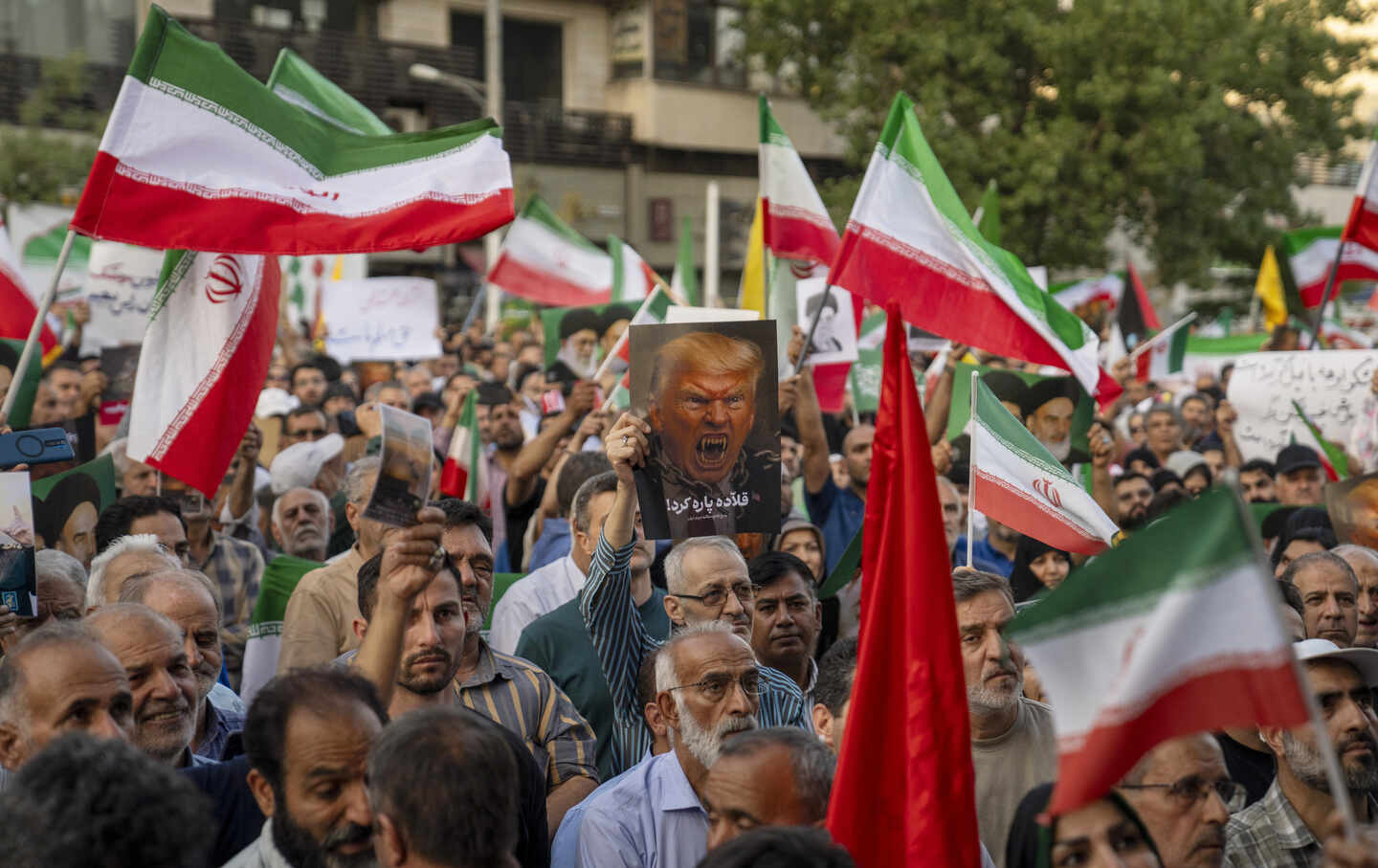
Imperfect as they were, our founding fathers asserted that liberty and human dignity are fundamental human values. A war with Iran repudiates them.
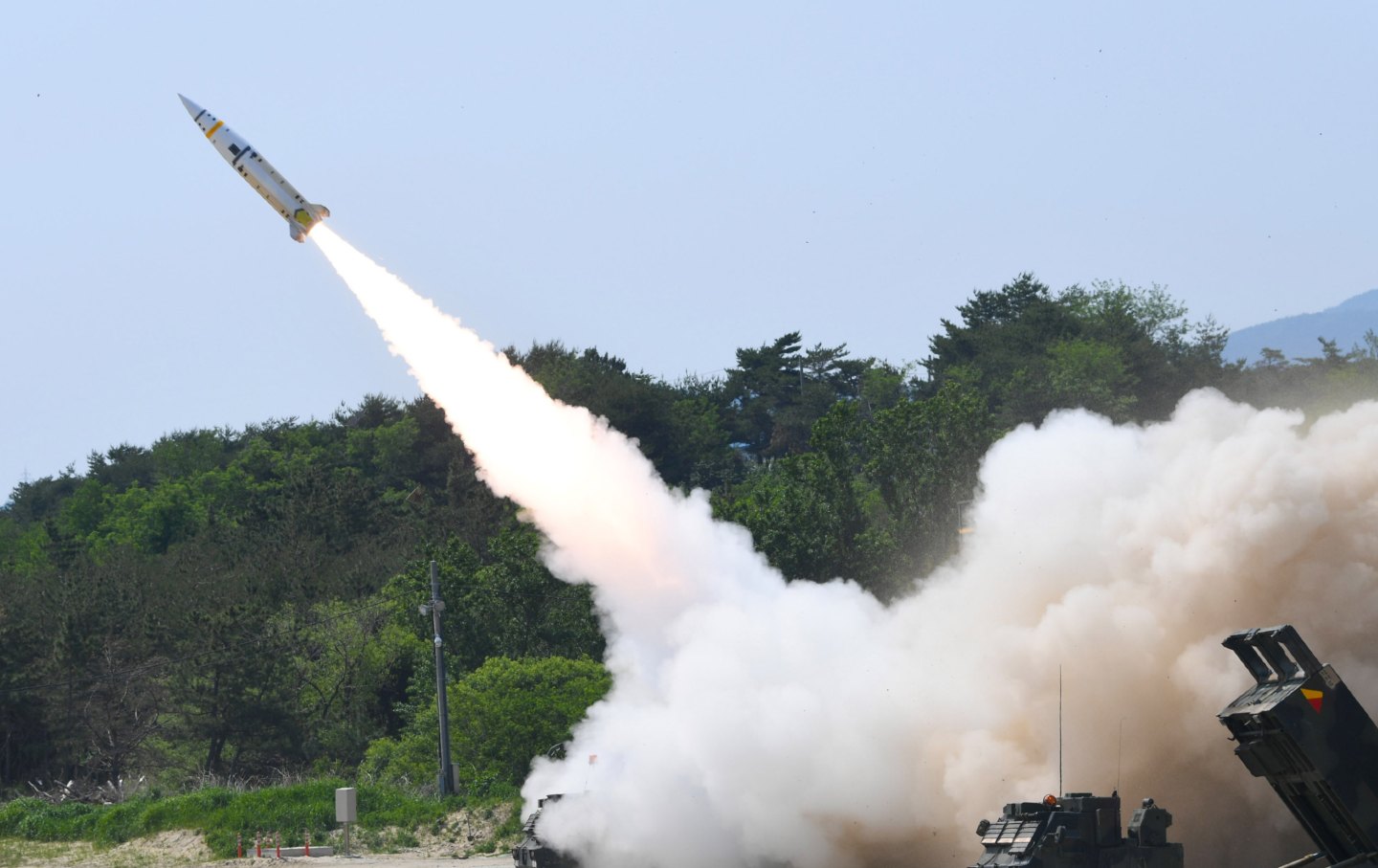
Yet mainstream US media outlets and partisan politics are routinely oblivious to threat of oblivion.
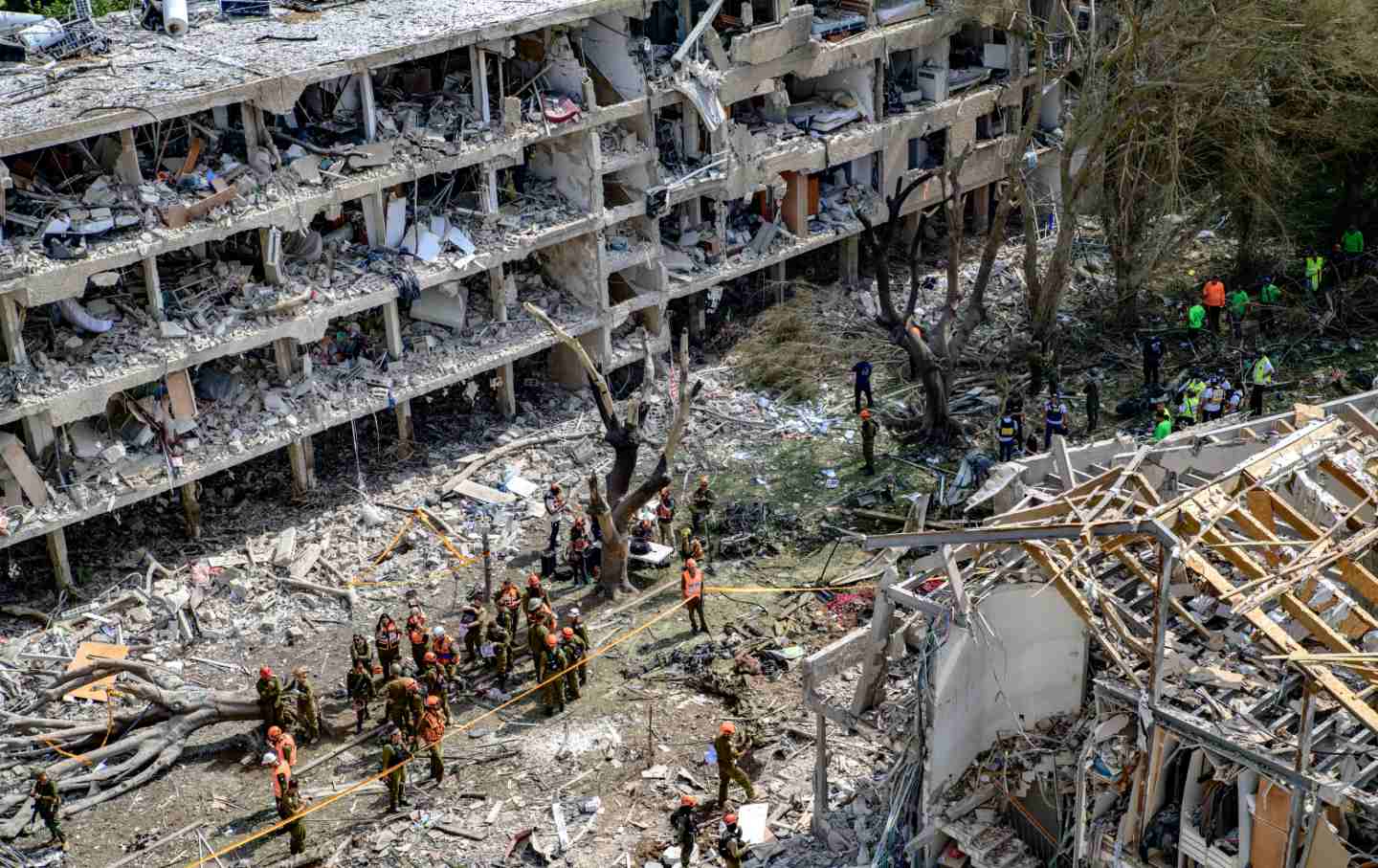
What was true before is still true now: There is no military solution to this conflict. Only diplomacy and a commitment to peace will work.
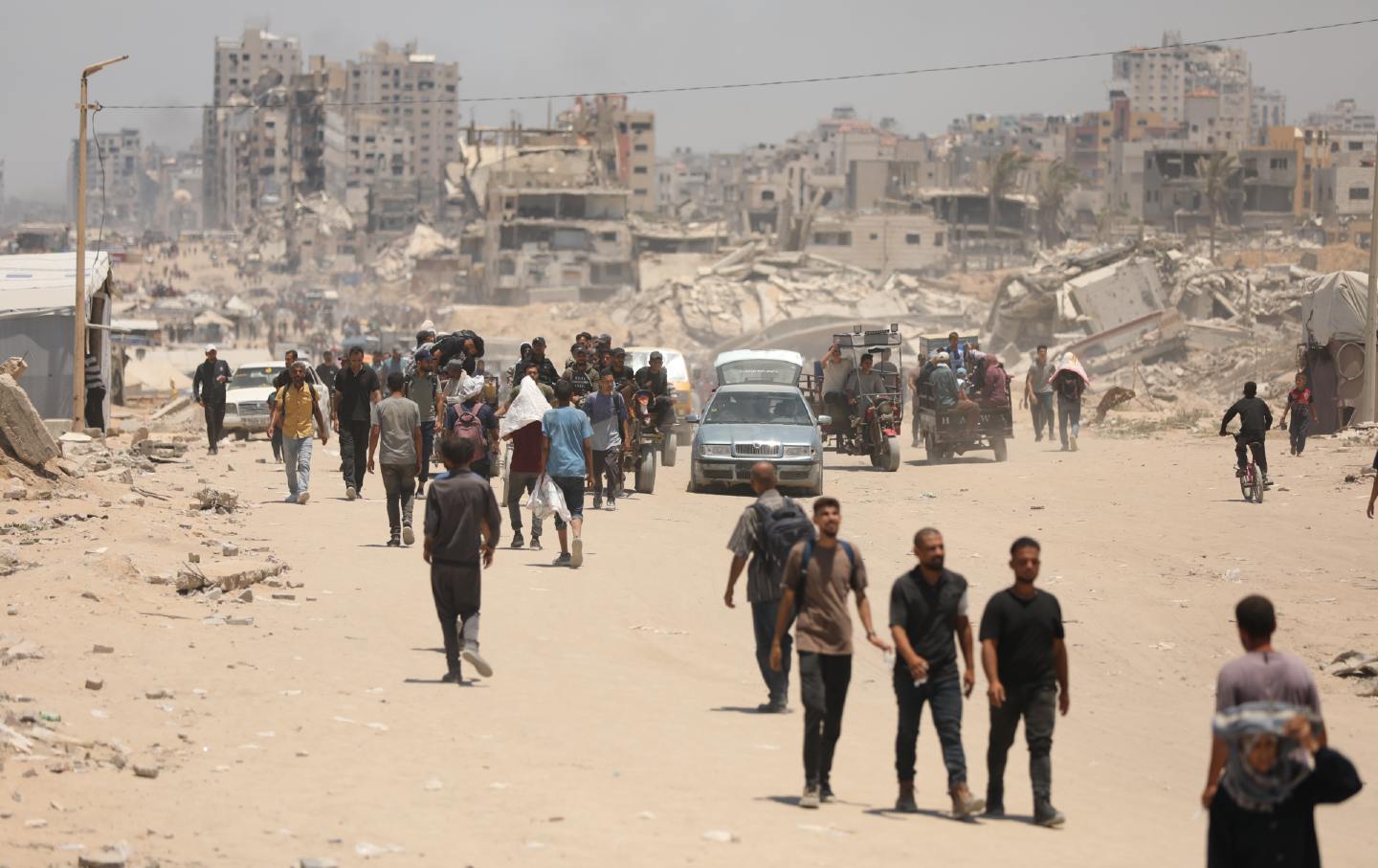
Israel has created “green zones” and “red zones” to distinguish between safe and dangerous areas. There’s little difference.

